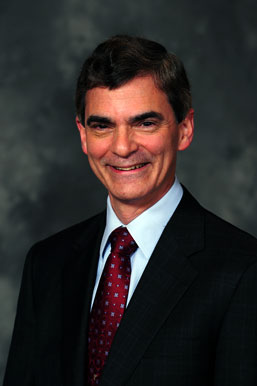'Health care is a team sport'
- April 20, 2015
- / Shannon Nickinson
- / training-development

Studer Group Medical Director Dr. Jay Kaplan is the president-elect of the American College of Emergency Physicians.
A New Orleans native and honors graduate of Harvard Medical School, Kaplan will begin his year-long term in October.
Kaplan joined the Studer Group in 2001, the year the health care consulting firm was founded by Quint Studer.
A nationally recognized speaker, consultant and facilitator, Kaplan’s work with the Studer Group takes him around the country, coaching hospital and physician leaders, medical groups, emergency departments, and individual physicians on the importance of teamwork in the ER between doctors and nurses.
A resident of Northern California, Kaplan was in Pensacola recently and sat down with Pensacola Today to discuss the current challenges facing emergency medicine, as well as the improvements made over the past decade.
Question: You’re President-elect of the American College of Emergency Physicians. When you assume office in October what will be among your top goals?
Answer: Among my top goals are to continue to bring high quality compassionate care to patients in emergency departments; to ensure access to medical care; and to ensure emergency physicians and nurses have the tools they need to care for their patients.
Q: How has the emergency room changed over the past 20 years?
A: When I first started practicing medicine 36 years ago, one of my goals was to change the ER experience. And what I mean is that it would be seen by patients not just as a place you go for life-threatening trauma, but rather as a place where you could have superb physicians diagnose you in an expeditious way, and have you feel cared for as well.
I think we have clearly moved in that direction. If you look at some of the data many emergency departments have implemented processes whereby patients are seen more quickly, and we are getting to where the quality of care for patients is getting better and better.
- Q: When traveling around the U.S. speaking to health care providers, what are the concerns you hear most from ER doctors?
- Q: What have you found matters most to ER patients when measuring their satisfaction with the care provided.
 CivicCon launches with a look at good growth in cities
CivicCon launches with a look at good growth in cities
 Building stronger brains one baby, one parent at a time
Building stronger brains one baby, one parent at a time
 SCI debuts commercial on Early Learning City
SCI debuts commercial on Early Learning City
 Entrecon: World class speakers and an opportunity to sharpen skills
Entrecon: World class speakers and an opportunity to sharpen skills
 PYP Quality of Life survey 2017
PYP Quality of Life survey 2017
 EntreCon Pensacola 2016: A look back
EntreCon Pensacola 2016: A look back
 Leadership tip: getting better employee takeaways
Leadership tip: getting better employee takeaways
 Leadership tip: be interested instead of interesting
Leadership tip: be interested instead of interesting
 Leadership tip: delivering difficult messages
Leadership tip: delivering difficult messages
 Brain Bags boost Arc, Early Childhood Court programs
Brain Bags boost Arc, Early Childhood Court programs